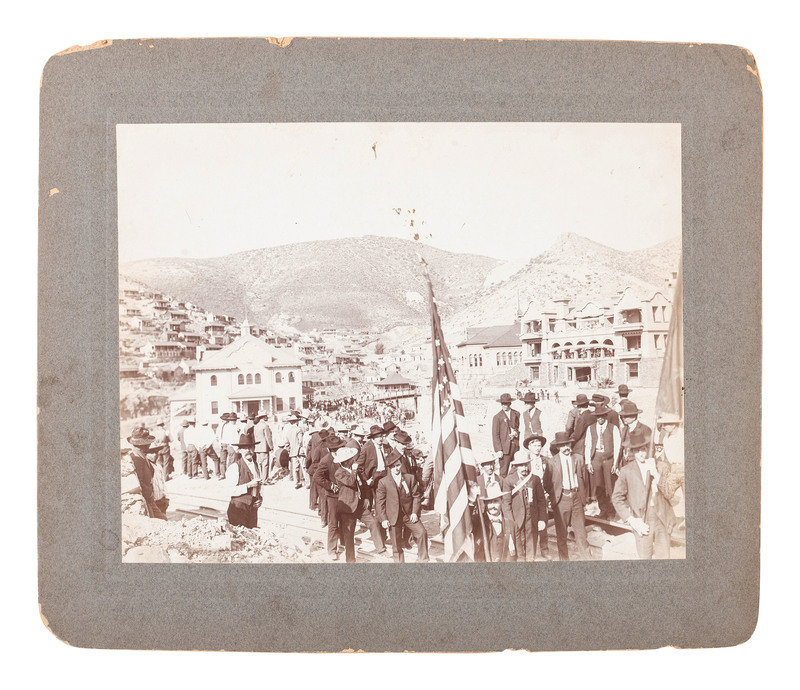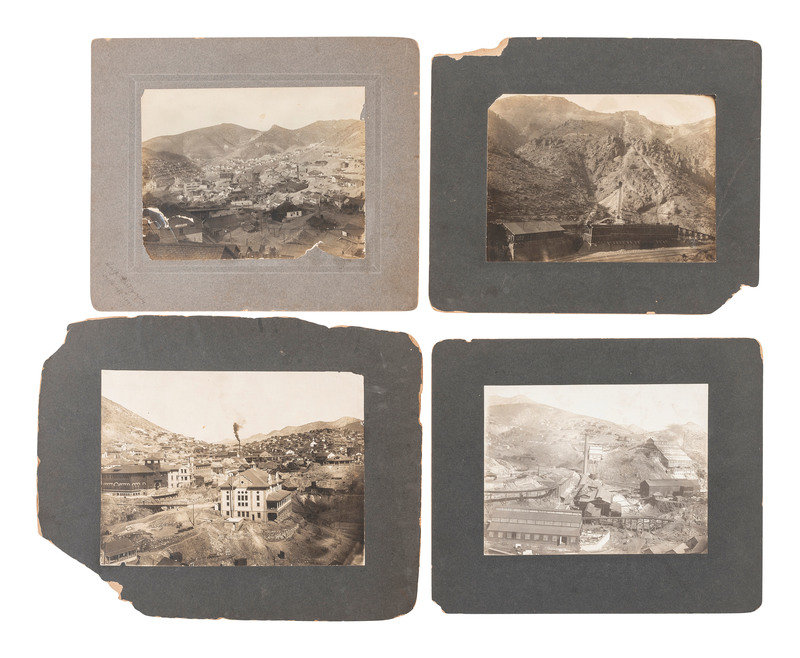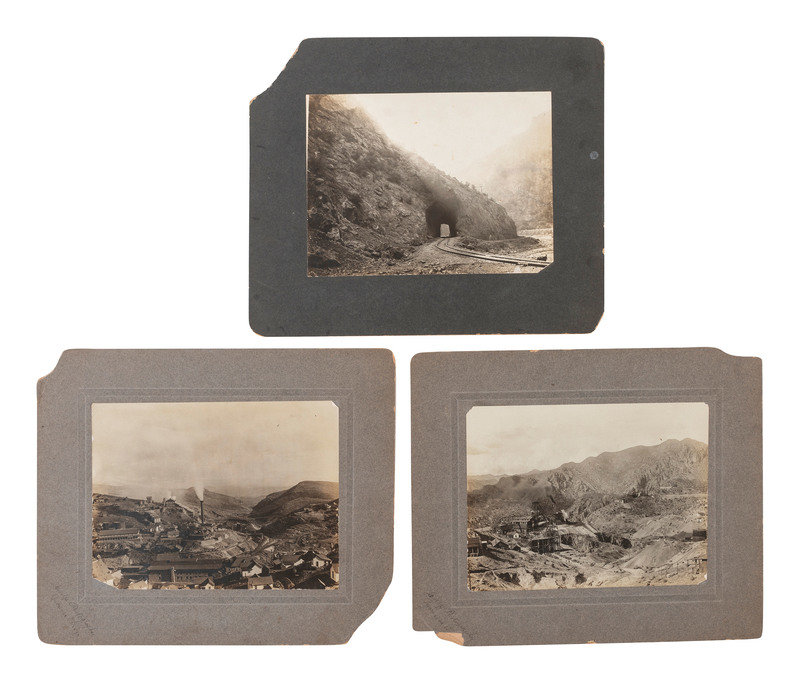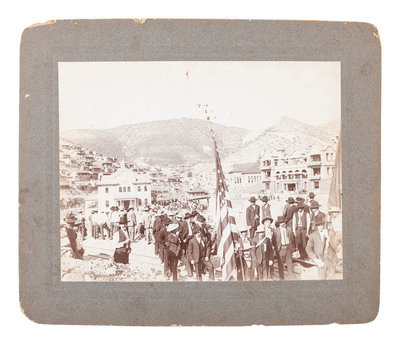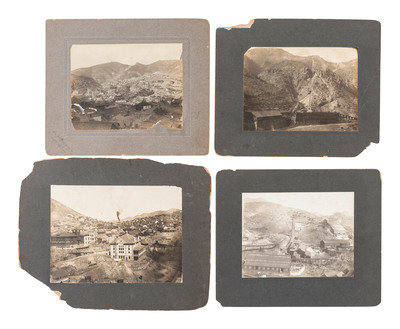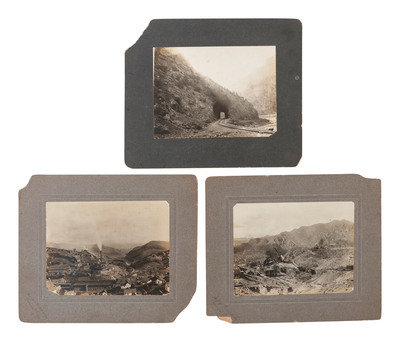8 silver gelatin photographs documenting Morenci, Arizona, and its environs, ranging in size from 6 x 8 in. to 7 1/2 x 9 3/4 in., on 10 x 12 in. cardstock mounts (toning, soiling, some prints with tearing, chipping, and loss to edges; substantial wear to mounts, including soiling, chipping and loss to edges). Three of the photographs include a manuscript inscription on the mount at lower left, "Culp Photography, Morenci, Ariz."
Old Morenci was located on the eastern border of Arizona from 1870-1984. Morenci was originally settled under the name "Joy Camp" in the early 1870s, after copper was discovered at the site. However, the name was changed in 1882 to "Morenci" by William Church, head of the Detroit Copper Company. The remote and rugged terrain of Morenci made early development of the mines costly and challenging. Raids led by Native Americans also contributed to the dangerous conditions. Nevertheless, the deposit was rich, which led to large investments of capital into the district, increased mining activity, and the development of the town of Morenci. By 1932, underground mining in Morenci was over, and open pit mining began 1937. However, the pit would eventually consume the entire town, which was completely gone by 1983. (Information obtained from the Western Mining History Website, November 2023.)
The photographs offered here present views of the town of Morenci and its mining operations around the turn of the 20th century. The images provide a sense of the extremely steep terrain of the area, which was recognized at one time as one of the most dangerous towns in the United States. One photograph features the Morenci Club at center, which was constructed ca 1902-1903. The club had a bowling alley, billiard tables, a library, and a theater. Another image appears to document a patriotic celebration or ceremony in Morenci, with several men, likely miners, gathered together for the festivities. A gentleman holds an American flag in the foreground.
